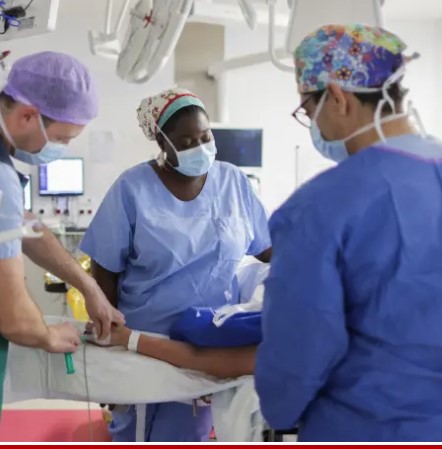These are the standout breakthroughs in tech that may revolutionize health care
The past year was an exciting one for medical advances. Here are five that I think will help revolutionize health care:
Artificial technology in the fields of cardiology and radiology for starters. A lung-cancer screening program called Sybil emerged from the MIT and Mass General Hospital that has an incredible 90% sensitivity to picking up early lung cancer even before it forms a characteristic nodule.
Rather than compete with doctors, AI will be a tool they can use to augment performance and decrease red tape much as a co-pilot functions on a sophisticated airliner.
Digital interfaces. Implants in the human brain have restored vision, speech, hearing and mobility to those who have lost it. Technology has reached the point where a paralyzed person can not only walk but feel his legs again.
Wearable monitors using artificial intelligence also can detect problems faster than a patient can, allowing quicker medical intervention. InfoBionic, for example, has a cardiac device that can feed data directly to a physician to help diagnose a rhythm problem or see if a treatment is working.
Animal organ usage. The world of transplantation has made tremendous strides in 2023, many occurring in my own institution, NYU Langone Health. Dr. Robert Montgomery, chief of surgery and himself a heart recipient, has implanted two pig kidneys (the first in 2021, the second in 2023) successfully in a human recipient. In the latter case, the patient lived on for more than two months, as the transplanted kidney functioned and made urine.
A pig heart was also transplanted successfully at NYU in 2022.
Also this year, Dr. Eduardo Rodriguez, chief of plastic surgery at NYU, performed another in a series of facial transplants, only this time added an eye for good measure in a patient who had lost one in a traumatic accident.
Gene editing. Most scientists have long realized that CRISPR technology has a bright future, and this year it finally made it to the marketplace, with an effective treatment for sickle cell anemia.
Many more treatments for everything from genetic diseases to cancer to chronic diseases of all kind are on the horizon thanks to gene therapy.
Vaccines. When Operation Warp Speed started in spring 2020, few thought we would have an even partly effective vaccine for COVID by that winter, yet we did, with an effective antiviral, Paxlovid, to follow in 2021, receiving full approval in May 202.
And then along came the two new respiratory virus, or RSV, vaccines, highly effective and safe for both the elderly who may frequently be hospitalized, as well as one of them for pregnant women, to protect not only themselves but the unborn infant.
Let’s not forget that it was our patients who felt the collateral damage of lockdowns and closures long before we did. It is time we listen before we speak, the way we were once taught to do in medical school.
Link to article: https://nypost.com/2023/12/29/opinion/these-are-the-standout-breakthroughs-in-tech-that-may-revolutionize-health-care/





No Comments